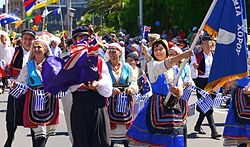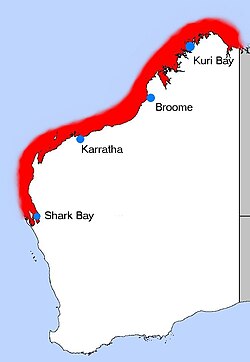
The first wave of Greek migrants arrived in Australia during the 1820s and 1830s, seeking economic opportunities and a better life. Most of them were sailors and adventurers who settled primarily in New South Wales, South Australia, and Victoria. However, it was not until the mid-nineteenth century that significant Greek migration took place, largely due to the discovery of gold in Australia.
Research your ancestors on MyHeritage
The gold rush eraThe gold rush era
The gold rush in Victoria, beginning in the 1850s, acted as a catalyst for Greek migration to Australia. Thousands of Greeks flocked to the goldfields in search of fortune. Bringing their skills as sailors, traders, and laborers, which proved useful in the booming gold rush economy.
The Greek immigrants participated in various aspects of the gold rush. Some engaged in prospecting, panning for gold in rivers and creeks, while others worked as laborers in mines and on goldfields. Many Greeks also established businesses to cater to the needs of the gold miners, such as supplying equipment, food, and other essential items. They opened shops, hotels, restaurants, and boarding houses, providing services to the growing population of miners.
Pearl divingPearl diving

Greek pearl divers played a significant role in the history of pearling in Australia during the late nineteenth and early twentieth centuries. The pearling industry was booming in Australia, particularly in regions such as Broome and Darwin, where large pearl shells were found in abundance.
Greek divers brought with them their traditional diving skills and techniques, which they had honed in the Mediterranean. These skills made them highly sought after in the pearling industry, as diving for pearl shells required expertise and courage due to the dangers involved.
Greek divers formed tight-knit communities within the pearling towns, maintaining their cultural traditions and practices. They established social clubs, churches, and schools to preserve their Greek heritage and support each other in their new lives.
Over time, the pearling industry began to decline, partly due to the introduction of cultured pearls and the impact of World War II. By the mid-twentieth century, many Greek divers had moved on to other professions or returned to Greece. Nevertheless, their legacy as skilled divers and pioneers in the Australian pearling industry remains significant.
Twentieth century migrationTwentieth century migration
During the twentieth century, Greece experienced a series of tumultuous events, including two world wars, the Greek Civil War, and political instability. These events further contributed to Greek migration to Australia, as many sought refuge from the violence and upheaval. The post-World War II period saw a significant increase in Greek migration, with the Australian government actively encouraging European immigration to meet labor shortages. This period witnessed the arrival of thousands of Greek migrants, who brought with them a strong work ethic, a commitment to family, and a rich cultural heritage.
Cultural enrichment and community integrationCultural enrichment and community integration
The Greek diaspora in Australia has preserved and celebrated its cultural traditions, forging a vibrant and dynamic community. Greek festivals, cultural events, and religious celebrations play a crucial role in maintaining cultural ties and passing on traditions to younger generations. Greek cuisine with its delicious array of dishes such as moussaka, souvlaki, and baklava, has become a beloved part of the Australian culinary landscape. Greek music, dance, and language classes are also widely available, helping to ensure the continuity of Greek heritage.
Greek Australians have demonstrated a strong sense of civic engagement, actively participating in political and community organizations. They have advocated for social justice, contributed to charitable causes, and played a vital role in fostering multiculturalism and inclusivity within Australian society. Greek community organizations have provided vital support networks for newly arrived migrants, helping them integrate into Australian life and access essential services.
Famous Greek AustraliansFamous Greek Australians

There have been numerous Greek Australians who have achieved fame in various fields. Here are some notable Greek Australians:
- Alex Dimitriades: An actor who has appeared in various Australian films and television series, including "Head On" and "Heartbreak High."
- Nick Giannopoulos: An actor, comedian, and filmmaker known for his work in the Australian comedy film "The Wog Boy" and the stage show "Wogs Out of Work."
- Costa Georgiadis: A landscape architect and television presenter, known for his role as the host of the Australian television series "Gardening Australia."
- Zoe Ventoura: An actress who has appeared in Australian television shows such as "Packed to the Rafters" and "Home and Away."
- Effie Stephanidis (Mary Coustas): A character created and portrayed by Mary Coustas, Effie is a comedic figure known for her appearances in various television shows and stage performances.
- Nick Kyrgios: A professional tennis player who has achieved success on the ATP Tour, known for his powerful serve and entertaining playing style.
- George Calombaris: A celebrity chef and restaurateur who gained prominence as one of the judges on the Australian cooking competition show "MasterChef Australia."
These are just a few examples of famous Greek Australians who have made significant contributions to their respective fields.

